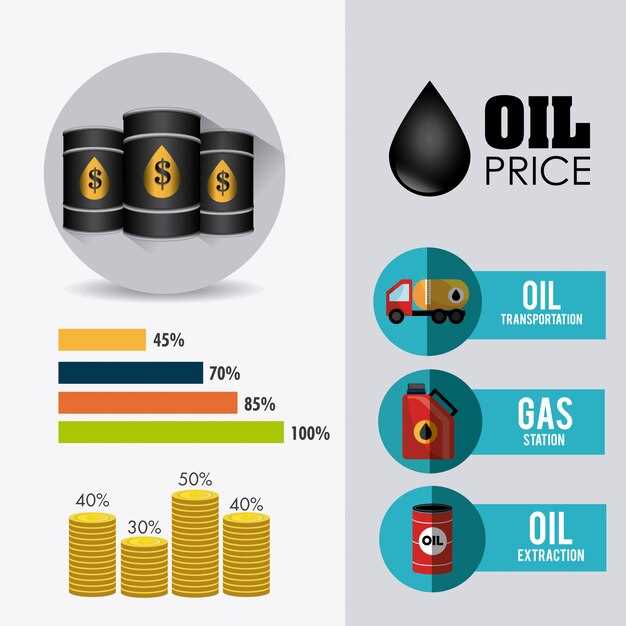
Synthetic motor oil has become a popular choice for vehicle maintenance, thanks to its unique formulation and advanced performance characteristics. This type of oil is engineered using chemically modified petroleum components and other additivities, providing a more uniform molecular structure compared to conventional oils. The resulting product claims to offer superior lubrication, enhanced performance, and better protection for engine components.
While synthetic motor oil boasts numerous benefits, it is not without its drawbacks. Understanding the pros and cons can help vehicle owners make informed decisions when it comes to oil selection. Benefits such as improved fuel efficiency, extended oil change intervals, and greater thermal stability are often highlighted by proponents. Conversely, some disadvantages include a higher initial cost and potential incompatibility with older engines.
In this article, we will delve deeper into the various advantages and disadvantages of synthetic motor oil, examining how these factors can influence maintenance practices and overall vehicle performance. By exploring both sides, readers will be better equipped to determine whether synthetic options are suitable for their automotive needs.
Performance Benefits of Synthetic Motor Oil
Synthetic motor oil is engineered to provide superior performance compared to conventional oil. One of the primary advantages is its enhanced lubrication properties. With a more uniform molecular structure, synthetic oil reduces friction between engine components, leading to smoother operation and improved efficiency.
Another key benefit is the high-temperature stability. Synthetic oils are designed to withstand extreme temperatures without breaking down, which helps prevent engine wear and prolongs engine life. This resilience is particularly beneficial for high-performance and turbocharged engines.
Additionally, synthetic motor oil offers better cold-start performance. It flows more easily at lower temperatures, ensuring that vital engine parts receive adequate lubrication even during the first moments after starting. This characteristic minimizes engine wear during cold starts, which is critical in maintaining engine integrity.
Moreover, synthetic oils provide superior oxidation resistance, which helps maintain oil clarity and performance over extended periods. This quality reduces the formation of sludge and deposits, keeping the engine cleaner and improving overall performance.
Lastly, the longer oil change intervals associated with synthetic motor oils not only save time and money but also enhance environmental sustainability by reducing the frequency of oil disposal. This efficiency translates into fewer resources used and less waste generated, making synthetic oils a more eco-friendly choice.
Cost Comparison: Synthetic vs. Conventional Oil
When evaluating the costs associated with engine oils, it is essential to consider both the purchase price and the long-term expenses related to maintenance and performance. Synthetic motor oil typically has a higher upfront cost compared to conventional oil. The price difference can range from 20% to 60%, depending on the brand and specific formulation.
Upfront Costs: The initial investment for synthetic oil is significantly higher. For example, a quart of synthetic oil might cost between $8 and $12, while conventional oil usually retails for $3 to $5 per quart. Car owners need to factor this price difference into their budget when deciding which type of oil to use.
Longevity and Oil Change Frequency: One of the major advantages of synthetic oil is its extended lifespan. Synthetic oils can last up to 7,500 to 15,000 miles between changes, while conventional oils typically need to be changed every 3,000 to 5,000 miles. This longer interval can lead to savings on maintenance costs over time, as it reduces the number of oil changes required.
Engine Performance and Efficiency: Synthetic oils often provide better engine protection and efficiency. They reduce friction and can improve fuel economy, which can offset the cost difference. If an engine runs more efficiently, it may consume less fuel, translating to additional savings for the vehicle owner.
Overall Cost Analysis: While synthetic oil is more expensive initially, its benefits often justify the investment. The longer oil change intervals, improved fuel efficiency, and enhanced engine protection can lead to lower overall maintenance costs. However, for owners of older vehicles or those who drive infrequently, conventional oil may still be a cost-effective choice, particularly if they adhere to regular oil change schedules.
In conclusion, while synthetic motor oil incurs higher upfront costs, its advantages in longevity, performance, and efficiency can result in lower total costs over the life of a vehicle. Choosing the right oil depends on individual driving habits, vehicle requirements, and budget considerations.
Environmental Impact of Using Synthetic Oils
Synthetic motor oils are designed to provide superior performance compared to conventional oils, but their environmental impact is a subject of ongoing debate. One significant advantage is that synthetic oils often last longer than traditional oils, which can lead to reduced waste. Extended oil change intervals mean fewer oil disposal events, resulting in less oil entering landfills or being improperly disposed of, thereby lowering the potential for soil and water contamination.
Additionally, most synthetic oils are formulated from chemically engineered base oils that can be produced using less crude oil than conventional oils. This reduction in reliance on fossil fuels can contribute to lower greenhouse gas emissions over the oil’s lifecycle, particularly during the refining process. Furthermore, synthetic oils can provide better fuel efficiency, as they have a lower friction coefficient, which allows engines to operate more efficiently. Enhanced fuel economy leads to decreased carbon emissions, making a positive contribution to air quality.
However, the production of synthetic oils is not without its drawbacks. The manufacturing processes often involve complex chemical processes and energy-intensive methods that can produce emissions and other pollutants. These environmental costs can offset some of the benefits obtained from their use over time. Moreover, synthetic oils can sometimes contain additives that may be harmful to aquatic ecosystems if they are released incorrectly into the environment.
Recycling synthetic oils is also more complicated than recycling conventional oils. While it is possible to recycle synthetic oils, not all recycling centers are equipped to handle them. This limitation can lead to improper disposal and increased environmental hazards if users do not adhere to responsible disposal practices.
In conclusion, while synthetic motor oils present several benefits that can lead to a smaller environmental footprint in terms of waste and emissions, their production and disposal must be managed carefully to mitigate any negative impacts. Education on proper disposal and recycling practices is essential to maximizing the environmental benefits of synthetic oils.
Longevity and Change Intervals in Synthetic Oil
Synthetic motor oil is engineered to offer enhanced longevity compared to conventional oils. Due to its superior chemical properties, synthetic oil is designed to withstand higher temperatures and resist breakdown, which allows it to remain effective for extended periods. This attribute often leads to longer oil change intervals, which can be beneficial for both vehicle performance and maintenance schedules.
Typically, the recommended change intervals for synthetic oils range from 7,500 to 15,000 miles, depending on the manufacturer’s specifications and driving conditions. In contrast, conventional motor oils may require changes every 3,000 to 5,000 miles. Synthetic oils maintain their viscosity better during operation, reducing the frequency of changes and potentially lowering overall maintenance costs.
However, several factors can influence the actual change intervals for synthetic oil:
| Factor | Impact on Change Interval |
|---|---|
| Driving Conditions | Frequent short trips or stop-and-go traffic may require shorter intervals. |
| Climate | Extreme temperatures can affect oil performance, necessitating more regular changes. |
| Engine Type | High-performance or older engines may need more frequent oil changes. |
| Oil Quality | Using high-quality synthetic oil can extend change intervals significantly. |
While synthetic oil provides longer longevity and extended change intervals, it is crucial to monitor your vehicle’s performance and adhere to the manufacturer’s recommendations. Regular checks of oil quality and levels are important to ensure optimal engine protection.
Compatibility with Engine Types and Conditions
Synthetic motor oil is designed to perform well across a variety of engine types and operating conditions. Its unique formulation allows for greater versatility compared to conventional oils. Below are some points detailing its compatibility:
- Engine Types:
- Gasoline Engines: Synthetic oil is highly recommended for modern gasoline engines due to its excellent lubrication properties and ability to reduce friction.
- Diesel Engines: Many synthetic oils are specifically formulated for diesel engines, providing superior protection against soot and wear.
- Performance Engines: High-performance engines benefit from synthetic oils, as they can handle high temperatures and stress without breaking down.
- Turbocharged Engines: The high heat generated in turbocharged engines is managed effectively by synthetic oils, which maintain their viscosity over time.
- Operating Conditions:
- Extreme Temperatures: Synthetic oils maintain their stability in both high and low temperatures, ensuring engine protection in varying climates.
- Heavy Loads: Vehicles that frequently carry heavy loads or tow trailers benefit from synthetic oils, which provide enhanced protection against wear and thermal breakdown.
- Frequent Short Trips: For drivers who take short trips often, synthetic oils help minimize engine wear since they reach optimal viscosity quicker.
- High Mileage Vehicles: Synthetic oils can be a good choice for high-mileage engines, as they contain additives that help reduce oil consumption and engine deposits.
In conclusion, synthetic motor oil can be effectively used in various engine types and under different operating conditions, helping to maximize engine performance and longevity. However, it is crucial to always check the vehicle manufacturer’s recommendations to ensure compatibility.
Myths and Misconceptions about Synthetic Motor Oil

One of the most common misconceptions about synthetic motor oil is that it is not suitable for older vehicles. Many people believe that the advanced formulation of synthetic oils can lead to leaks or damage in engines that have been running on conventional oil for years. In reality, synthetic oils can help enhance the performance of older engines by providing better lubrication and reducing wear, thus potentially extending their lifespan.
Another prevalent myth is that synthetic motor oil lasts forever and does not require regular changes. While synthetic oils do have a longer lifespan compared to conventional options, they still degrade over time and need to be replaced according to the manufacturer’s recommendations. Neglecting oil changes can lead to engine buildup and decreased performance, regardless of the type of oil used.
Many consumers also believe that synthetic motor oil is only beneficial for high-performance or luxury vehicles. While it is true that these vehicles can greatly benefit from the superior protection and performance of synthetic oil, it is not exclusive to them. Vehicles of all makes and models can experience improved fuel efficiency, lower emissions, and enhanced engine protection when using synthetic oil.
Some worry that synthetic motor oil is too slippery, leading to oil running off engine parts and inadequate lubrication during cold starts. However, synthetic oils are designed to maintain viscosity across a wide temperature range, ensuring proper lubrication even in colder conditions. This quality makes them ideal for a variety of climates, particularly in extreme temperatures.
Lastly, there is the misconception that synthetic motor oils are significantly more expensive than conventional oils without offering significant benefits. While the upfront cost may be higher, the long-term savings due to reduced engine wear, increased fuel efficiency, and fewer oil changes can make synthetic oil a more economical choice over time.
